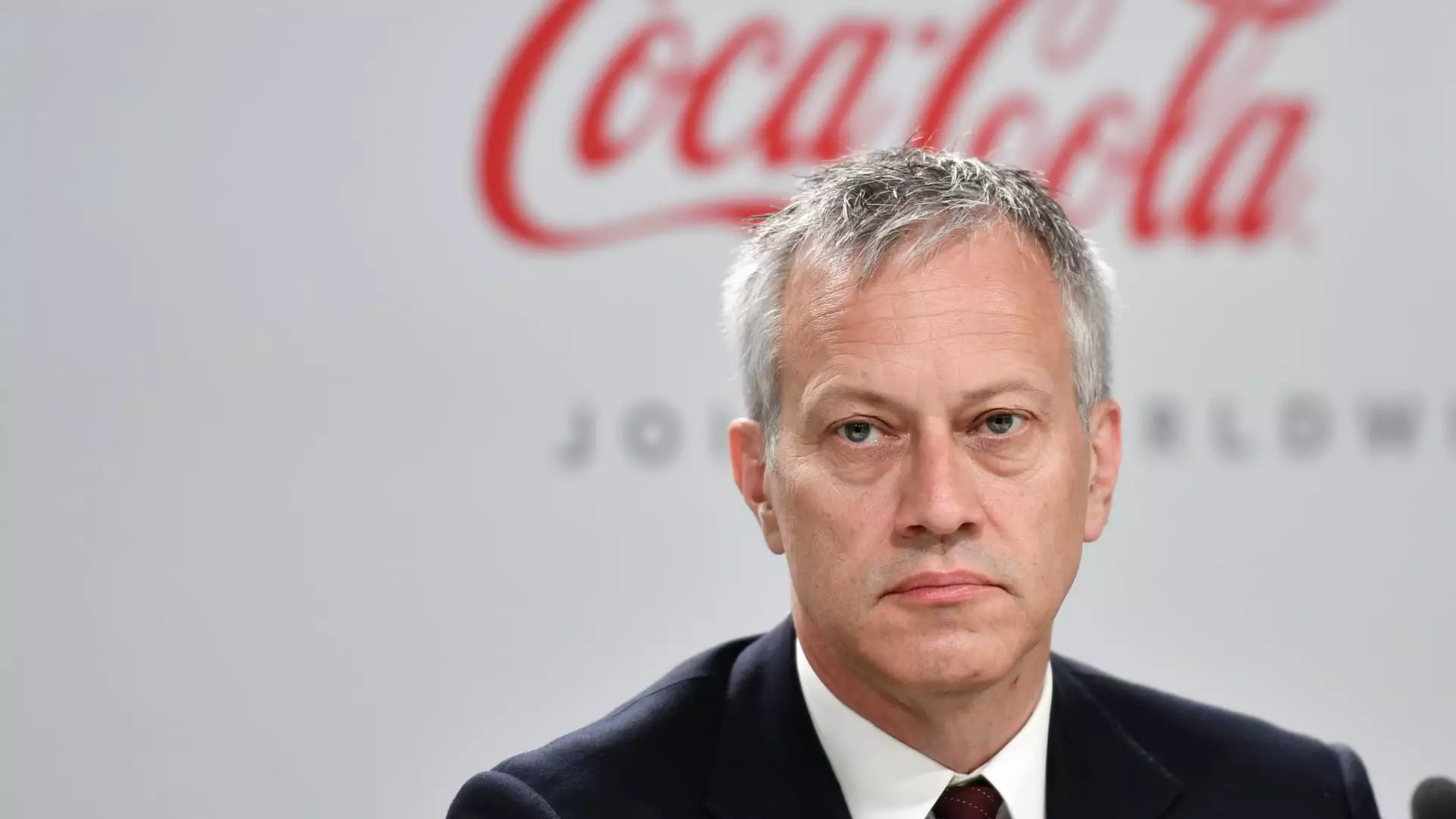Coca-Cola and McDonald’s have maintained a partnership for nearly seventy years, characterized by mutual marketing investments and shared business goals. Coca-Cola’s CEO, James Quincey, recently addressed concerns regarding an E. coli outbreak linked to McDonald’s Quarter Pounder burgers during the company’s third-quarter earnings call. Quincey reassured stakeholders that the outbreak is unlikely to have a significant impact on Coca-Cola’s sales, reflecting a deeper understanding of their intertwined business strategies. This relationship highlights the importance of adaptability amidst unforeseen crises, as both corporations navigate a challenging landscape of consumer behaviors and economic pressures.
Coca-Cola’s approach to managing the current situation reflects its resilience as a brand. Quincey’s comments signify a strategic outlook that emphasizes partnership over panic. By stating that “it’s not going to be a large, significant impact to the business,” Quincey reassures investors while recognizing the limited geographical scope of the outbreak. The context provided is crucial; since the reported cases are concentrated in ten states, the expected fallout remains contained. This crisis management illustrates how companies can remain calm and calculated during adverse events, potentially mitigating damage through proactive communication and operational adjustments.
The Centers for Disease Control and Prevention (CDC) has identified an E. coli outbreak affecting consumers of McDonald’s Quarter Pounder burgers, with various states reporting confirmed cases. The agency has identified potential culprits, including onions and fresh beef patties, ingredients intrinsic to the specific burger offering. McDonald’s swift response to temporarily pull the Quarter Pounder from select menus demonstrates its commitment to customer safety, likely aimed at minimizing reputational damage. Singing the praises of its broader menu options, the brand’s messaging aims to reassure consumers and deter fears surrounding the safety of its food offerings.
However, the broader context matters; with McDonald’s facing a challenging consumer spending environment, the outbreak complicates its recovery strategy. As dining habits shift, many fast-food chains, including McDonald’s, have been navigating a landscape increasingly sensitive to price and safety, often utilizing discount strategies to attract foot traffic. Coca-Cola, for its part, has partnered in major promotional campaigns to enhance the appeal of McDonald’s combo meals, reflecting an active role in leveraging this relationship to offset potential losses.
Despite the current crisis and a general slowdown in restaurant sales, Coca-Cola saw its third-quarter earnings and revenue surpass Wall Street projections, a testament to its pricing strategies amidst sluggish consumer spending. This performance reveals that even in a tumultuous environment, brands can drive profitability through strategic pricing, reinforcing the importance of agility and resilience.
Yet, market sentiment following the earnings report shows vulnerability; Coca-Cola’s shares fell by over 2% during morning trading. This decline indicates investor caution and the overarching concern about macroeconomic factors impacting consumer behavior, underscoring the interconnected nature of the food and beverage industries. Furthermore, the partnership between Coca-Cola and McDonald’s creates a unique dependency, leaving both companies sensitive to external pressures that could exacerbate their operational challenges.
While immediate concerns surrounding the E. coli outbreak may pose challenges, opportunities exist for Coca-Cola and McDonald’s to emerge from this situation stronger than before. As McDonald’s works to navigate the implications of the recent health crisis, Coca-Cola’s role as a supportive partner may solidify loyalty in the long term. Both companies must explore innovative collaborations that not only enhance their value proposition but also fortify consumer trust in their brands.
Moving forward, it is crucial for both Coca-Cola and McDonald’s to remain vigilant in their public communications and marketing strategies. Clear messaging that emphasizes safety and quality assurance will be paramount in overcoming consumer hesitancy and maintaining their standing in a competitive market. Ultimately, by leveraging their long-standing partnership and responsive capabilities, both companies can survive this near-term crisis while laying the groundwork for future growth.


Leave a Reply